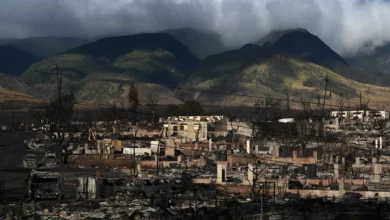US Unveils Iran Prisoner Exchange Deal And Release Of $6 Billion In Tehran Assets
In a groundbreaking diplomatic development, the United States has revealed an unprecedented prisoner exchange agreement with Iran, accompanied by the release of approximately $6 billion in Iranian assets. This monumental announcement signals a significant stride towards diplomatic resolution and the alleviation of prolonged tensions between the United States and the theocratic government in Tehran. In this comprehensive article, we dissect the intricacies of this historic deal, its far-reaching consequences, and the key figures at the forefront of this remarkable diplomatic breakthrough. Follow Our website TheGossipsWorld Media for the latest updates!!!!!

Iran Prisoner Exchange Deal
The Iran Prisoner Exchange Deal, unveiled by the United States, signifies a pivotal diplomatic breakthrough aimed at resolving long-standing tensions between the two nations. This historic agreement involves the release of American citizens unjustly detained in Iran in exchange for the freedom of Iranian detainees held within the United States.
This humanitarian effort represents a crucial step towards reconciliation and offers hope for improved relations between the United States and Iran, underscoring the power of diplomacy in addressing complex geopolitical issues.
Release of American Detainees
The United States has successfully secured the release of five American citizens who have endured years of unjust detention within Iranian borders. These individuals, who have been the focus of international concern, are finally on the path to freedom.
- Siamak Namazi: Siamak Namazi, an Iranian-American businessman, was detained in 2015 and has since become a symbol of the need for diplomatic resolution in US-Iran relations.
- Emad Sharghi: Another Iranian-American businessman, Emad Sharghi, suffered arrest in 2018, facing a 10-year prison term on espionage charges—a situation emblematic of the challenges posed by geopolitical disputes.
- Morad Tahbaz: Morad Tahbaz, an Iranian-American environmentalist with dual citizenship, was also unjustly imprisoned in 2018, further underscoring the human rights dimensions of diplomatic relations.
The identities of the remaining two detainees remain confidential, underscoring the sensitivity of this pivotal phase of negotiations.
Release of Iranian Prisoners in the US
In return for the release of these American citizens, the United States is set to free five Iranian detainees held within its borders. These individuals, who have been caught in the crossfire of international disputes, are now on the brink of regaining their freedom.
- Kaveh Lotfolah Afrasiabi
- Mehrdad Ansari
- Amin Hasanzadeh
- Reza Sarhangpour Kafrani
- Kambiz Attar Kashani
This exchange highlights the intricate nature of international diplomacy, with some detainees returning to Iran while others are expected to remain in the United States.
The Release of Iranian Assets
Simultaneously with the prisoner swap, the Biden administration has authorized the release of approximately $6 billion in Iranian assets. These funds, previously frozen, will be transferred to an account at Qatar’s central bank. The primary aim of this transfer is to allocate these resources for humanitarian purposes, with a specific focus on procuring essential items such as food and medicine. This move carries particular significance amidst ongoing US sanctions on Iran.
Global Implications
This diplomatic milestone holds profound implications on a global scale, reflecting the Biden administration’s commitment to pursuing diplomacy as a means of resolving complex geopolitical issues. Nevertheless, it has sparked a range of reactions, receiving both praise and criticism from various quarters.
Congressional Response
The timing of this announcement, coinciding with the 22nd anniversary of the September 11, 2001, terror attacks, has ignited strong reactions within the US Congress. Some lawmakers express concern over releasing such substantial funds to Iran, a nation that the United States views as a leading sponsor of terrorism in the Middle East and beyond. They worry that these funds could potentially be diverted to activities detrimental to American interests.
Humanitarian Focus
Supporters of the deal emphasize the commendable release of frozen assets for humanitarian purposes, underlining the importance of addressing the basic needs of the Iranian people, especially in the context of sanctions. The allocation of funds for food and medicine is a significant step towards alleviating the suffering of ordinary Iranians.






